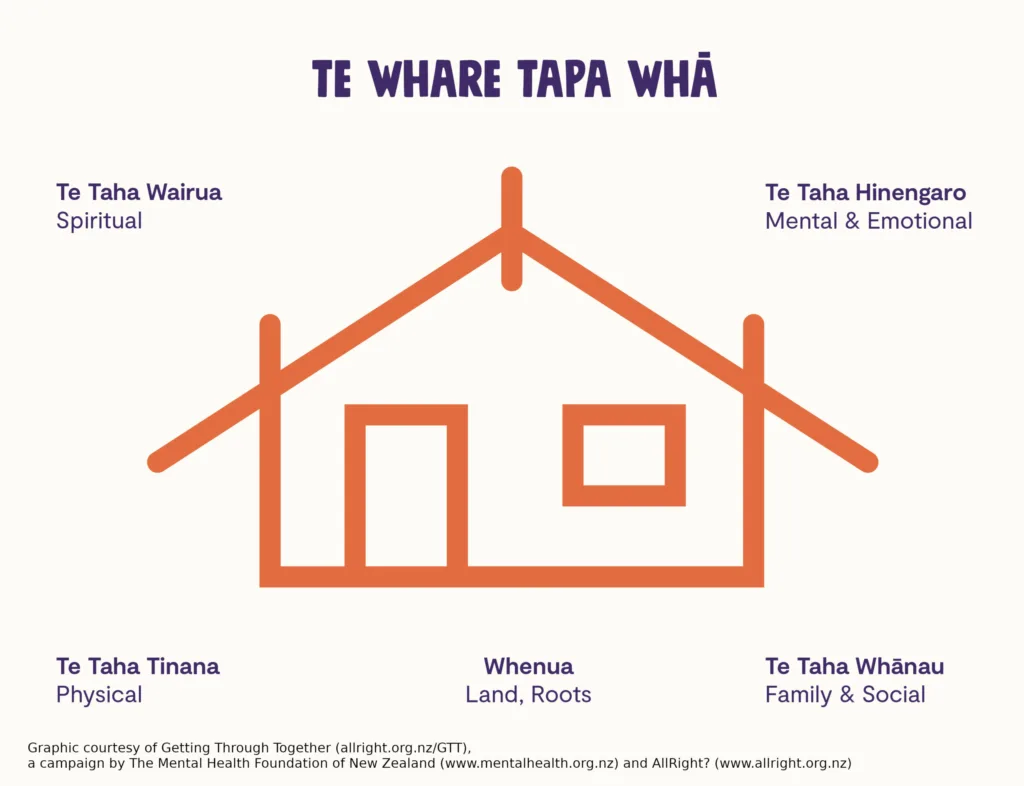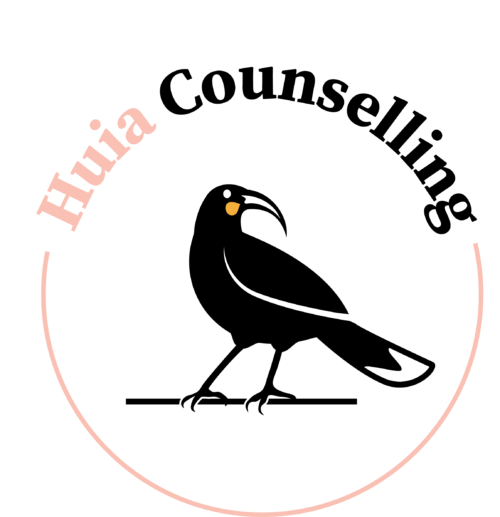
What is Te Whare Tapa Wha?
Te Whare Tapa Wha is a really helpful model developed by Maori scholar Mason Durie. Counsellors like myself use it to support our clients’ well-being. It looks at four different aspects of your life: your spiritual, physical, mental, and family/whanau health. With these areas of life in mind, we explore problems within the counselling session.

Taha Wairua
Taha Wairua, or spiritual health, is all about our sense of identity, purpose, and connection to something greater than ourselves.
For some, this might mean exploring religious or spiritual beliefs. For others, it might mean connecting with nature or engaging in creative pursuits. Another way is finding a sense of purpose through volunteering or community work.
As a counsellor, I might ask questions like: “What gives your life meaning and purpose?” or “Do you feel connected to something greater than yourself?” By exploring these questions, we support a client’s spiritual well-being and help them to develop a stronger sense of identity and purpose.

Taha Tinana
When we talk about Taha Tinana, we’re looking at how our physical health impacts our well-being. This means examining things like our diet, exercise, sleep, and any physical symptoms we may be experiencing.
In counselling, I might ask questions to understand a client’s physical health, such as how they’re feeling physically and if they’re getting enough exercise and sleep.
By exploring our physical health, we can develop healthy habits and routines that support our overall well-being. This may involve making changes to our diet, developing an exercise routine, or seeking medical treatment for any physical symptoms. By taking care of our physical health, we can improve our energy levels, reduce stress, and feel more grounded and balanced in our daily lives.

Taha Hinengaro
Taha Hinengaro, or mental health, is a vital component of our overall well-being. It’s all about our internal world and how we think, feel, and process our experiences. Mental health issues can be incredibly complex and can range from anxiety and depression to more severe conditions like schizophrenia or bipolar disorder.
As a counsellor, I might ask clients questions like “How are you feeling emotionally?” or “Are there any patterns of thinking or behaviour that are causing you distress?” in order to get a better sense of their mental state.
By exploring our mental health, we can help them develop coping strategies to manage symptoms and challenges. This might involve techniques like mindfulness, cognitive-behavioural therapy, or trauma-focused therapy.
I also work with clients to challenge negative thought patterns and beliefs that may be holding them back or causing distress. By working through past traumas or difficult experiences, we can begin to heal and move forward in a more positive and healthy way.
Ultimately, the goal of exploring Taha Hinengaro is to help clients build resilience, improve their emotional well-being, and achieve a more balanced and fulfilling life.

Taha Whanau
Finally, Taha Whanau, or family/whanau health, is all about our relationships with others and our sense of connection to our wider community. This can include things like family dynamics, social supports, and community involvement.
As a counsellor, I might ask questions like: “How are your relationships with your family and friends?” or “Do you feel connected to your community?” By exploring family and community relationships, we can help to develop strong support networks and build a sense of connection and belonging.
Overall, Te Whare Tapa Wha is a holistic model that encourages us to think about our well-being in a more integrated and interconnected way. By exploring all four dimensions of well-being, we can help to support our clients in developing a more balanced and fulfilling life. As a counsellor, my role is to support my clients in exploring these dimensions and developing strategies to support their ongoing well-being.
